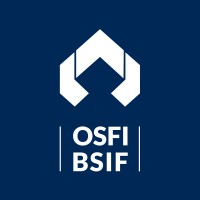Banks and other financial institutions contribute largely to the Canadian economy and its financial stability. As such, they are mandated to comply with numerous laws and regulations, both at the federal and provincial levels. This includes complying and coordinating with Canadian banking regulators.
Who regulates the banks in Canada?
Under federal jurisdiction, the Canadian banking regulators are composed of different authorities and government agencies. While all other categories of financial institutions such as securities, cooperatives, insurance companies, pension plans, and trust and loan companies are regulated by both federal and provincial legislations, banks are exclusively regulated by federal legislations and the respective Canadian banking regulator.
Minister of Finance
The Minister of Finance heads the Department of Finance Canada (or Finance Canada). Since the Minister has the overall oversight of the financial sectors in Canada, its office is considered as the main Canadian banking regulator. Although this authority of regulation is shared with other Canadian banking regulators, and the Department works together with these agencies and authorities.
 Office of the Superintendent of Financial Institutions (OSFI)
Office of the Superintendent of Financial Institutions (OSFI)
One of the Canadian banking regulators is the Office of the Superintendent of Financial Institutions (OSFI). It is an independent agency which reports to the Minister. It regulates the incorporation and supervision of banking activities in the country according to the provisions of Canada’s Bank Act.
Incorporation of Banks
Whenever financial institutions including banks are incorporated federally, they fall under the regulation of the OSFI.
When a bank applies for incorporation in Canada, its approval will be shared between the OSFI and the Minister, as mandated by the Bank Act.
Under the Act, there are three classifications of banks which they may be incorporated into:
- Schedule I banks: Canadian-incorporated domestic banks
- Schedule II banks: Canadian-incorporated subsidiaries of foreign banks
- Schedule III banks: authorized branches of foreign banks
Except for foreign banks listed under Schedule III of the Act, incorporating a federally regulated bank under Schedule I and Schedule II generally follows three procedures (Part III, Bank Act):
- Pre-application: submission of documentary requirements and financial business plan, which includes meeting with the OSFI
- Issuance of letters patent of incorporation: issued by the Minister after recommendation by the OSFI and submission of further requirements
- Issuance of order to conduct business: issued by the OSFI after further meetings and subsequent pre-commencement onsite review
As for foreign banks that wish to establish its presence in Canada, they would still be governed by the Canadian banking regulators such as the Minister and the OSFI, according to the relevant provisions of the Bank Act (Part XII.1, Bank Act).
There are two levels of approval that foreign banks must obtain from these Canadian banking regulators to operate in Canada:
- Ministerial Order: issued by the Minister to allow the establishment of the foreign bank branch (FBB)
- Superintendent Order: issued by the OSFI to the FBB to allow it carry out its business in Canada, establishing the authorized foreign bank (AFB).
OSFI is what makes Canada’s banks and financial institutions among the strongest in the world. To learn more about OSFI and its intervention approach, watch this video:
For questions on OSFI or any of Canada’s banking regulators, you can consult a lawyer in your province. If you live in Toronto, for example, talk to a Lexpert top-ranked lawyer for banking and financial institutions in Ontario.
 Financial Consumer Agency of Canada (FCAC)
Financial Consumer Agency of Canada (FCAC)
Another Canadian banking regulator is the Financial Consumer Agency of Canada (FCAC). The FCAC is another independent body established to educate and to protect consumers regarding the products and services of financial institutions, such as banks.
While the OSFI regulates banks and their financial soundness, the FCAC regulates banks’ financial products and services. As such, FCAC has jurisdiction over consumer-related issues regarding banks and other financial institutions.
Consumer Provisions
For its purpose of protecting consumers, the FCAC implements what are called “consumer provisions” of the Bank Act. These consumer provisions, which apply not only to banks but also to other financial institutions, are the following:
- designation and regulation of the financial institution’s Board of Directors (sections 157(2)(e) and 195.1)
- distribution of securities of a federal credit union (section 273.1)
- proper training of officers and compliance with other consumer provisions of the financial institution’s officer who offers and sells its products and services (section 627.02)
- implementation of regulations regarding the dealings of the financial institution’s employees, representatives, and agents, with the public or its customers (section 627.998)
- any wrongdoing of the financial institution, which violates any provision of the Bank Act, or any of its voluntary codes of conduct, policies, or procedures (section 979.1)
- the dismissal, suspension, demotion, disciplining, or harassment of an employee, or the denial of their employment benefits, by reason of their whistleblowing or in preventing a wrongdoing from occurring (section 979.4)
Codes of Conduct
FCAC is also the Canadian banking regulator that monitors the compliance of banks with the applicable codes of conduct such as:
- Code of Conduct for the Delivery of Banking Services to Seniors
- Canadian Code of Practice for Consumer Debit Card Services
- Code of Conduct for the Credit and Debit Card Industry in Canada
- Code of Conduct for Federally Regulated Financial Institutions
- Canadian Bankers Association’s Model Code of Conduct for Bank Relations with Small- and Medium-Sized Businesses
 Financial Transactions and Reports Analysis Centre of Canada (FINTRAC)
Financial Transactions and Reports Analysis Centre of Canada (FINTRAC)
The banking regulator that monitors money laundering and terrorist financing activities or suspected activities of banks and financial institutions is the Financial Transactions and Reports Analysis Centre of Canada (FINTRAC).
FINTRAC is an independent agency, whose mandate is to detect, prevent, and deter any activity that may be construed as money laundering and terrorist financing. This is done by conducting financial surveillance and evaluation of financial documents of banks and other financial institutions, in relation with the Proceeds of Crime (Money Laundering) and Terrorist Financing Act, the country’s law against money laundering and terrorist financing.
Who do you report banks to in Canada?
The Canadian banking regulator in charge of receiving and investigating public complaints regarding the products and services of banks would be the FCAC. External complaints body (ECB) may also receive public reports and complaints regarding banks in Canada. However, this is without prejudice to the filing of a case or court action before the regular courts for damages, redress, or compensation.
Do you have questions regarding the different Canadian banking regulators? Leave a comment below or consult with one of Lexpert's top-ranked lawyers specializing in banking and financial institutions.





